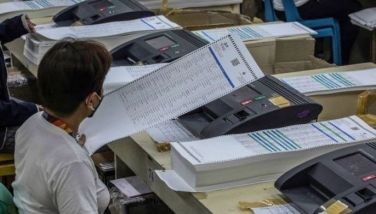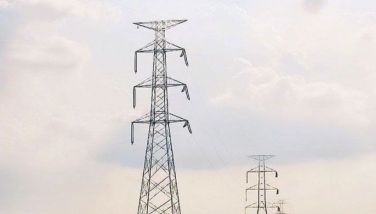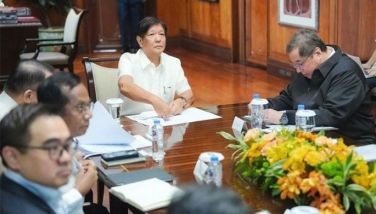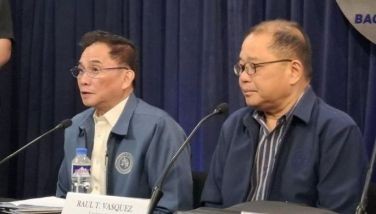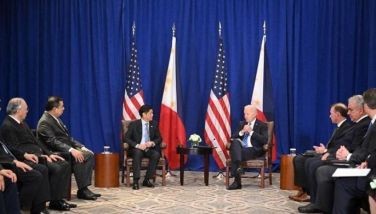Marcos needs ‘good reason’ to scrap NGCP franchise
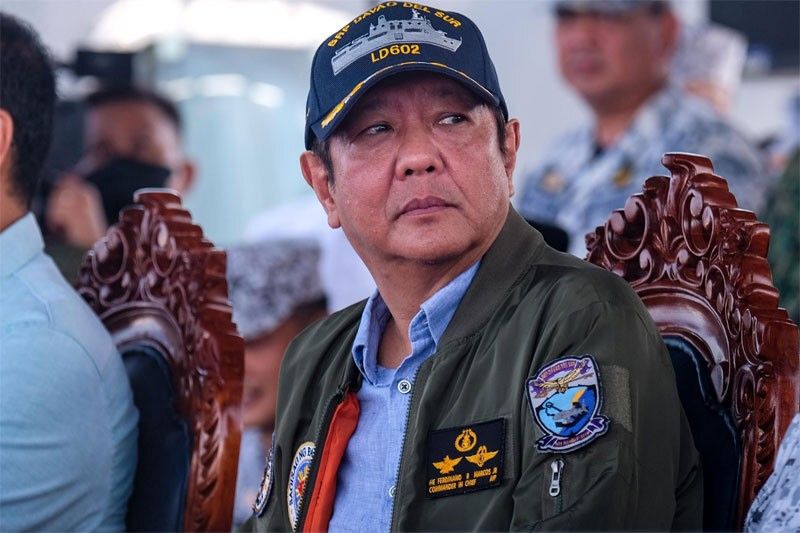
MANILA, Philippines — There has to be a “good reason” to withdraw the franchise of the National Grid Corporation of the Philippines (NGCP), President Marcos said, arguing that the problems hounding power distribution in the country would remain regardless of who operates the transmission grid.
Interviewed by media in Pagudpud, Ilocos Norte last Friday, Marcos said scrapping the NGCP’s franchise would require the government to look for a new power grid operator and result in a “gap” since whoever takes over the role lacks experience.
“There has to be a good reason to withdraw the franchise,” the President said.
“So, [supposing] you withdraw the franchise and remove everyone there, where will we get their successors? We will have to find a way to absorb the others into it. In other words, we will have a gap somehow because of the absence of management experience. We still need to train people,” he said.
Pressed on whether or not he is open to a government takeover of the power grid, Marcos replied: “Whoever will take over, the problem remains the same. The problem is that we will have to replace the personnel who will operate and we still have to build [infrastructure].”
“That’s the same problem, whatever option we choose to exercise,” he added.
State-run National Transmission Corp. (TransCo) operated the power grid from March 1, 2003 to Jan. 15, 2009, then turned over the management and operation of its nationwide transmission system to NGCP.
The NGCP is 40-percent owned by the State Grid Corp. of China (SGCC), while the remaining 60 percent is held by the group of Filipino business tycoon Henry Sy Jr. The ownership of all transmission assets remains with TransCo.
Last week, Sen. Raffy Tulfo said he had proposed to return the systems operation of the country’s transmission grid to TransCo and to limit NGCP’s role to maintenance during a meeting with Marcos.
Tulfo, who heads the Senate energy committee, claimed that Chinese ownership of NGCP “poses serious national security threat,” considering the conflict between China and the Philippines over the West Philippine Sea.
Security
Marcos said the security problems linked to the operators of the power grid is “part of the discussion” but maintained that he is also looking at their performance and whether the contract between the government and the NGCP is complied with.
“Congress is investigating that (security concern). We are looking if we can fix the system,” he said.
On directly attending to this concern, the President cited the National Intelligence Coordinating Agency (NICA) and NGCP’s memorandum of understanding on safeguarding the country’s power transmission assets which was signed last March.
“Of course, the security risk is there. We are studying it carefully. That’s why the NICA and the NGCP have signed an MOU. They are making sure that no outsider, somebody sitting in their office in – I don’t know… in eastern Europe – would decide to cut our power. That won’t happen,” he added.
In an interview with “The Chiefs” on Cignal TV’s OneNews channel last Friday, Philippine Institute of Cybersecurity Professionals national president Francisco Ashley Acedillo said electrical grid systems indeed serve as great sources of risk for any country in the way they are operated and the way they need to be secured.
Acedillo said any electrical grid system is highly vulnerable and it depends on the operator’s security, how robust or how insecure that system is.
“Now, in the case specifically of NGCP and how it can be undermined, it would have to be a very persistent, a very sophisticated and very technologically advanced attacker, and that can only be a country. It cannot be a small group. It cannot be a lone wolf hacker,” he asserted.
While he is not aware of any instances, so far, of China’s interference in terms of the operations of the national grid elsewhere, Acedillos said the economic powerhouse has exerted political and economic pressure on the countries where they are heavily invested.
Not to overlook the possibility of Chinese interference with the NGCP board, the security expert said: “I’m actually more concerned with the operational technical access. That is where we should be fearful.”
Acedillo said the government must take a look at all critical infrastructure, majority of which are in the hands of the private sector, and come up with a critical infrastructure protection strategy that includes not only NGCP, but also the telcos and other vital systems of the country.
“So the government has no choice but to work hand in hand with the private sector in terms of not just ensuring performance and reliability but, more importantly, security as well of this critical infrastructure, especially in this case, the national grid,” he said.
Marcos said the issue is really about the performance of the NGCP, citing the power outages affecting Negros and Panay islands, recently.
He said Negros has an excess power supply and there is a need to install a submarine cable to address the power distribution concerns but it has not been accomplished.
“And there was a very clear agreement in the contract as to how much investment the grid corporation would put in. That is what we are studying now. Were they able to do it? If yes, why do we have deficiencies and why is this happening?” Marcos added.
In pushing for an investigation in the Senate, Tulfo cited the supposed violations of NGCP in its franchise contract, including its alleged failure to follow timely development and connectivity in the main grid of energy power in various provinces.
He said these concerns and lapses are enough reasons for the government to revoke NGCP’s franchise.
In a recent statement, the Presidential Communications Office (PCO) said Marcos had agreed with Tulfo’s proposal to conduct a comprehensive study or hold hearings to determine the actual situation involving the NGCP. If necessary, the government will take back control of the entity, the PCO added.
NGCP safeguards
NGCP spokesperson Cynthia Alabanza assured the public that safeguards are in place so that Filipinos make the day-to-day decisions on the grid’s operations, allaying security concerns over the involvement of the Chinese government in the country’s transmission lines.
“It’s all-Filipino decision on a day-to-day level,” Alabanza told the same episode of The Chiefs. “These Chinese investors, of course, they’re entitled as an investor to a commensurate stake of their investment in our board of directors. So that’s where they do have representation to the tune of 40 percent.”
In the NGCP’s 10-member board, four directors are from the SGCC as shareholders.
“At the board level, when you make decisions on how the technology or the technical aspect of the operations will be conducted, there is that already 60-40 protection in place. So if there is something that the Filipinos feel that shouldn’t be implemented, because you know, for whatever reason, there is always that mode,” Alabanza explained.
“The second layer of protection here is at the management level where you have 100-percent Filipino (managers) and everything that has happened at the implementation level is done by Filipino engineers and executives and rank and files,” she added. — Richmond Mercurio
- Latest
- Trending
























